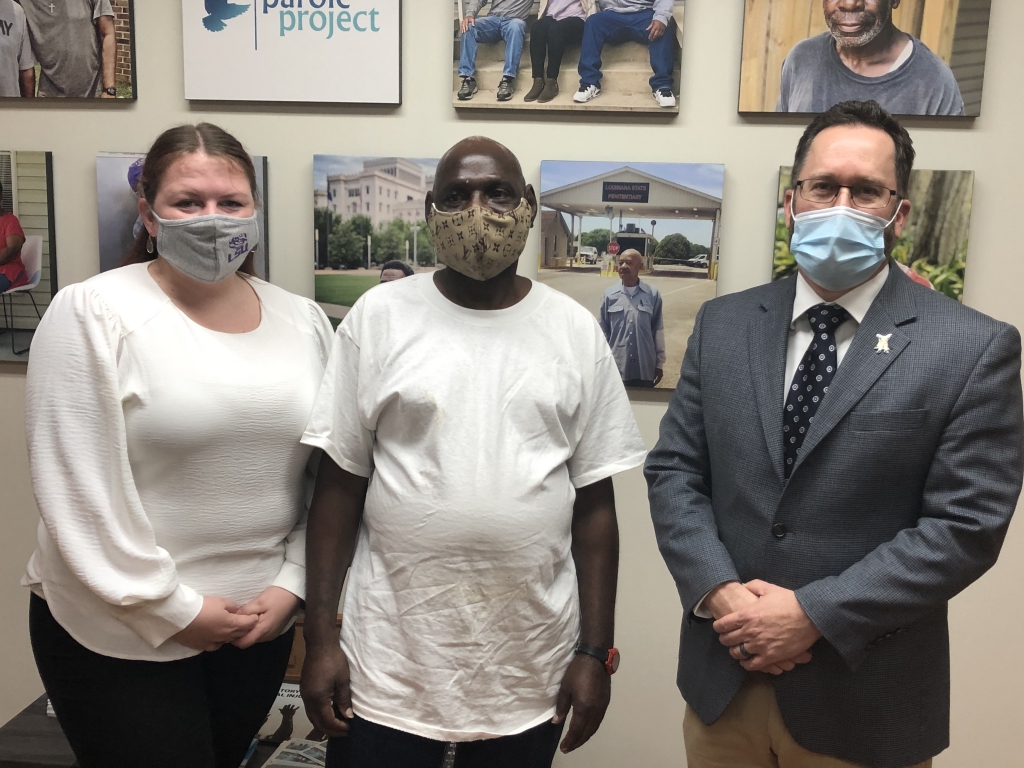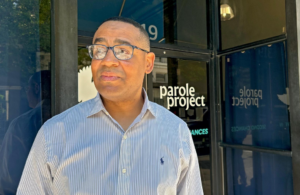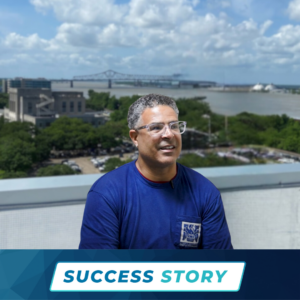A black man in his mid-50s, dressed in a white tee-shirt and blue jeans, is holding what looks like a large laundry bag. The look on his face is perfectly clear—gratitude and relief. Behind him are large red words clearly painted on a structure in the background, “Louisiana State Penitentiary.” He is not unique. The institutions may be different, and the “he” may be a “she”, but the images all freeze that surreal moment when a client walks out of prison after decades of incarceration and into a world vastly different from the one he or she left.
The images have become synonymous with our work, but it is neither the beginning nor end of our clients’ journeys. This chapter, however, is often paved with the cooperative assistance of the LSU Parole and Reentry Clinic which provides legal representation for the parole hearing process.
The relationship between Parole Project and the Clinic was formed following the 2016 Supreme Court decision that became the means in 2017 to change Louisiana’s sentencing laws regarding persons sentenced as adults to life in prison for crimes they committed as children. Established just two years earlier, in 2014, the clinic is an experiential learning tool for law students and also fills a much-needed void to provide legal representation for parole candidates.
Louisiana’s first juvenile lifer to be granted parole, Andrew Hundley, partnered with LSU Law professors Keith Nordyke and Robert Lancaster to create Louisiana Parole Project, followed by a memorandum of understanding with the Clinic help represent those who, unlike Andrew, were without representation for their hearings.
At the heart of this partnership is Lancaster, Assistant Dean of Experiential Education at the LSU Law School. He has spent his career advocating for human rights and a more equitable legal system. As a law student, he worked summers with advocacy organizations specializing in death penalty defense and, after graduation, he represented inmates on death row. After a clinical teaching fellowship at Yale Law School and professorships at American University Washington College of Law and Indiana University School of Law, Lancaster came to LSU. He works closely with Nordyke and Parole Project Legal Director Jane Hogan, both adjunct law professors, to supervise Clinic students who represent clients at their parole hearings.
Lancaster believes the Clinic is valuable due to its unique learning opportunity through firsthand experience. “Students gain valuable lawyering skills through their participation in the clinic,” he said. “It underscores the importance of their role in telling a narrative about a client.” Students become knowledgeable about issues of mass incarceration, possibilities for criminal justice reform, constitutionality of certain forms of punishment, and specific changes to Louisiana law that have made many of the clinic’s clients parole eligible. But the primary lesson to be learned is how to become a successful advocate.
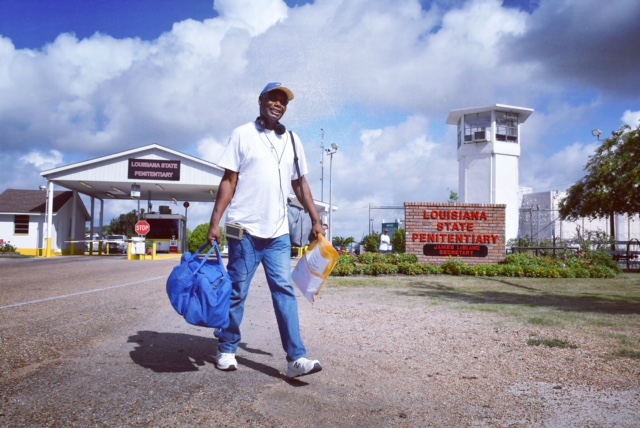
The future lawyers are encouraged to gain as much understanding about a client’s life as possible, providing a framework to tell their story. Students generally meet multiple times with clients, and also interview family members and friends while collecting as much documentation as possible. It all goes to completing the most important assignment of the course, the biographical narrative that provides background and context along with their efforts to find redemption. The narrative must be unflinchingly honest about the worst thing the client has ever done that left a devastating impact upon the lives of others, but also paint the picture of rehabilitation and the potential to succeed after release should the Parole Committee find the client deserving of a second chance. Just as they would do as a practicing attorney in court, the student must present the evidence that sways those who will make the decision.
Lancaster believes these experiences shape the students’ professional identity and allows them to understand the impact they can have on others. “Anyone who works directly with Parole Project understands how its work is so transformative,” said Lancaster, who also serves on Parole Project’s board of directors.
Kelsey Jenkins, a former Clinic student, speaks highly of her experience working with Parole Project clients. Before taking the course, she wanted to be a prosecutor. She enrolled to learn “the other side” and to strengthen skills that would make her a successful prosecutor. However, her mind changed after taking a trip to Angola where she was moved by what she saw. “I feel like some people do commit terrible deeds where they deserve to go to prison, but I don’t want to be the person who puts them there. That trip definitely changed my whole outlook.”
As a law student, Jenkins was assigned to prepare client hearing briefs, closing statements, and also prepare the client to appear before the board. Jenkins is a strong advocate for clients because she believes in the ability of people to change and their potential to contribute to the world in important and positive ways. “It is possible to accept responsibility for serious harm that you have caused others in the past but at the same time also believe that your life has value,” she said. Jenkins points out that Parole Project clients were committed to their rehabilitation through education, job training, and doing service work years and even decades before they knew parole eligibility was an option. Their records, she added, reflect the service and self improvement done during their incarceration. “That’s why I feel comfortable saying they deserve a second chance and why I want to commit my professional life to helping them get that second chance.”
Photo caption: Parole Project client Fair Bryant is flanked by former LSU Parole and Reentry Clinic student Kelsey Jenkins (left) and Robert Lancaster, Assistant Dean of Experiential Education at the LSU Law School. Jenkins assisted Lancaster in Bryant’s parole hearing representation.
